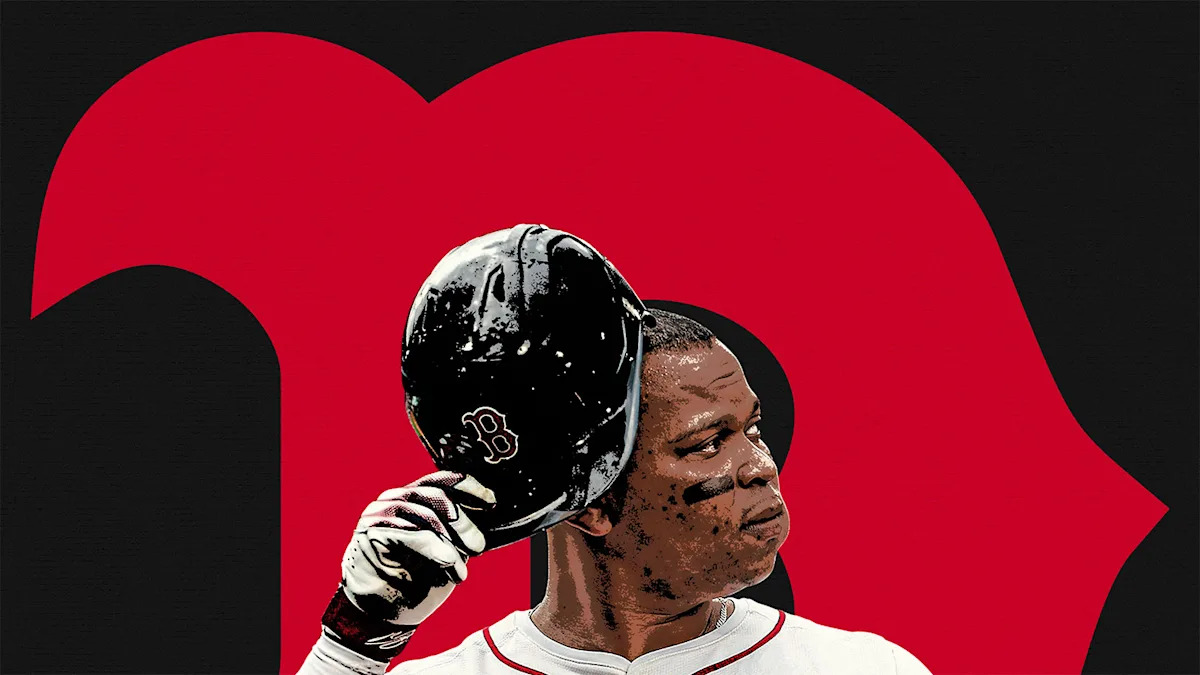BOSTON — The recent trade of Rafael Devers has left many in the baseball community stunned, marking it as one of the season’s most surprising moves. The Boston Red Sox’s decision to send Devers to the San Francisco Giants is steeped in complications that extend beyond mere player transactions; it highlights the internal strife that has been brewing within the franchise.
The Aftermath of the Trade
Just hours before the trade announcement, Devers faced the media following his team’s triumphant sweep of the New York Yankees. He seemed unfazed and expressed that the controversy surrounding his position on the team was now in the past. However, that sentiment belied the tumultuous events leading up to the deal—events that were not strictly tied to a single incident but rather a series of fractures in trust and relationships within the organization.
The trade resulted in the Red Sox acquiring left-hander Kyle Harrison, reliever Jordan Hicks, outfield prospect James Tibbs III, and rookie pitcher Jose Bello. While Devers was the face of the franchise, his departure signifies a deeper rupture within the organization—a situation that should never have escalated to this level.
The Landscape of Red Sox Baseball
Boston fans have faced years of reassurances from the front office about building a competitive, sustainable team. Yet, as they witnessed the trade of another homegrown star, one could sense the familiar echoes of previous disappointments, particularly the departure of superstar Mookie Betts. The message remains the same: whenever the going gets tough, the Red Sox flinch and retreat from the stars they should nurture.
Despite a recent surge in activity, the trade of Devers has left fans feeling betrayed. After a successful three-game series against the Yankees, where Fenway Park was abuzz with excitement, the abrupt decision to move Devers felt like a knife to the heart of the fanbase.
Roots of Discontent
The discontent surrounding Devers can be traced back to February, when the Red Sox acquired All-Star third baseman Alex Bregman. Devers, who had recently secured a 10-year, $313.5 million extension, was assured that third base remained his domain. When Bregman was assigned the position, Devers felt misled and viewed this as a significant breach of trust.
In a meeting held a month later with Chief Baseball Officer Craig Breslow and manager Alex Cora, the issue was briefly set aside; however, things began to slide once again when the team requested Devers to shift to first base due to an injury to player Triston Casas. Devers’s flat refusal and public expression of frustration hinted at a deteriorating relationship with the front office as he felt unsupported and misunderstood.
“I’m not certain what [issue] he has with me,” Devers remarked about Breslow. This captures the essence of a growing rift—one that clearly went beyond personal disagreements but into a realm of unaligned goals and priorities.
Leadership Crisis
The trade may also be indicative of a larger leadership crisis within the Red Sox. Manager Alex Cora and Breslow have had conflicting ideas about the team’s direction. Cora aims to achieve immediate success on the field, while Breslow espouses a philosophy focused on sustainable growth. The conflicting priorities have created cognitive dissonance within the clubhouse, undermining the collective goal of success.
This tension eventually spilled onto the field, as prospective talent was sidelined in favor of more experienced players. Cora appeared increasingly willing to compromise the long-term vision for short-term gains—essentially pitting the present against the future.
Fraying Cohesion in the Front Office
The organizational atmosphere has visibly decayed. Reports of a front office losing its collaborative spirit are pervasive, with sources indicating that veteran staff members feel increasingly marginalized. The culture that once showcased teamwork and collective effort has shifted toward a more transactional mindset, elevating efficiency over fundamental integrity.
Breslow’s introduction of a consulting firm aimed to streamline operations resulted in significant shake-ups within the organization. Many long-serving employees found their roles diminished, culminating in a moment of open disrespect during an internal meeting that starkly exemplified the cultural malaise. The atmosphere became so toxic that even simple expressions of frustration evoked harsh consequences.
Ownership Detachment
Compounding these issues is a perception that ownership has become increasingly hands-off. Historically, Red Sox owners have been deeply involved in team operations, providing a guiding hand even in turbulent waters. However, signs indicate that John Henry has delegated day-to-day operations to team president Sam Kennedy. This newfound detachment raises alarms about diverging priorities within Fenway Sports Group’s broader portfolio.
The optics of trading Devers while simultaneously investing heavily in European football sends a conflicting message, leaving fans and players alike bewildered.
Moving Forward
As the dust settles on this dramatic trade, the Red Sox may perceive this maneuver as a chance to sever ties with a contract deemed untenable. While Devers showcased impressive statistics this season, including a batting average of .272 and 15 home runs, the perception is that he wasn’t adapting to the evolving dynamics of leadership that Cora sought.
Ultimately, the trade illustrates a franchise that continues to struggle with its identity and direction. Devers, once viewed as a cornerstone, became synonymous with the unresolved issues plaguing the Red Sox.
While the team seeks to rebuild and refocus, the question looms large: How does a franchise claiming to pursue stability continue to unravel under pressure? Only time will tell whether the Red Sox can overcome their internal dysfunction and reclaim their position as a formidable force in baseball. As they embark on this new chapter, the story of Rafael Devers will remain a poignant reminder of the complexities involved in navigating the fragile relationships that define this game.









